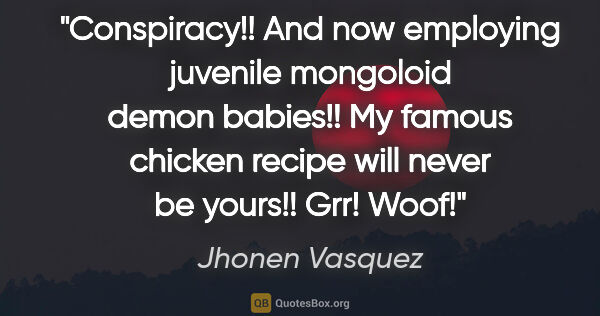Famous Quotes (page 13)
And on the subject of burning books: I want to congratulate librarians, not famous for their physical strength or their powerful political connections or their great wealth, who, all over this country, have staunchly resisted anti-democratic bullies who have tried to remove certain books from their shelves, and have refused to reveal to thought police the names of persons who have checked out those titles. So the America I loved still exists, if not in the White House or the Supreme Court or...
Kurt Vonnegut
After accepting love as a stimulus, a man faces the third obstacle: the fear of the defeats he will encounter along the way. A man who fights for his dream suffers far more when something doesn’t go well, because he cannot use the famous excuse: “oh, well in fact that wasn’t exactly what I wanted anyway… ” He does want it, and knows he is putting everything into it, and also that the Personal Legend is just as difficult as any other path - the difference being that your heart is present on...
Paulo Coelho
Jonathan Swift (November 30, 1667? October 19, 1745) was an Irish cleric, satirist, essayist, political pamphleteer (first for Whigs then for Tories), and poet, famous for works like Gulliver's Travels, A Modest Proposal, A Journal to Stella, The Drapier's Letters, The Battle of the Books, and A Tale of a Tub. Swift is probably the foremost prose satirist in the English language, although he is less well known for his poetry. Swift published all of his works under pseudonyms? such as Lemuel...
Jonathan Swift

Right now I am thinking of writing another cookbook. All cookbooks have a gimmick, and mine will be that it contains recipes that I have invented and named after famous people. Some of them are: Brisket of Brynner (very lean meat)Carson Casserole (it's got everything on it)Barbecued WaltersMarinated MaudeRoasted RhodaKing King Curry (it will feed about eight thousand people)Fricassee of FonziPickled RicklesRaquel RelishLeftovers la Gabors
Vincent Price
I asked the professors who teach the meaning of life to tell me what is happiness. And I went to famous executives who boss the work of thousands of men. They all shook their heads and gave me a smile as though I was trying to fool with them. And then one Sunday afternoon I wandered out along the Desplaines river and I saw a crowd of Hungarians under the trees with their women and children and a keg of beer and an accordion.
Carl Sandburg
I knew damn well I would never be a movie star. It's too hard; and if you are intelligent, it's too embarrassing. My complexes aren't inferior enough: being a movie star and having a big fat ego are supposed to go hand-in-hand; actually, it's essential not to have any ego at all. I don't mean I'd mind being rich and famous. That's very much on my schedule, and someday I'll try and get around to it; but if it happens, I'd like to have my ego, tagging along. I want to still be me when I wake up...
Truman Capote

The ceaseless, senseless demand for original scholarship in a number of fields, where only erudition is now possible, has led either to sheer irrelevancy, the famous knowing of more and more about less and less, or to the development of a pseudo-scholarship which actually destroys its object.
Hannah Arendt
Nicholas Temelcoff is famous on the bridge, a daredevil. He is given all the difficult jobs and he takes them. He descends into the air with no fear. He is a solitary. He assembles ropes, brushes the tackle and pulley at his waist, and falls off the bridge like a diver over the edge of a boat.
Michael Ondaatje
In the eighteenth century, philosophers considered the whole of human knowledge, including science, to be their field and discussed questions such as: Did the universe have a beginning? However, in the nineteenth and twentieth centuries, science became too technical and mathematical for the philosophers, or anyone else except a few specialists. Philosophers reduced the scope of their inquiries so much that Wittgenstein, the most famous philosopher of this century, said, "The sole remaining...
Stephen Hawking